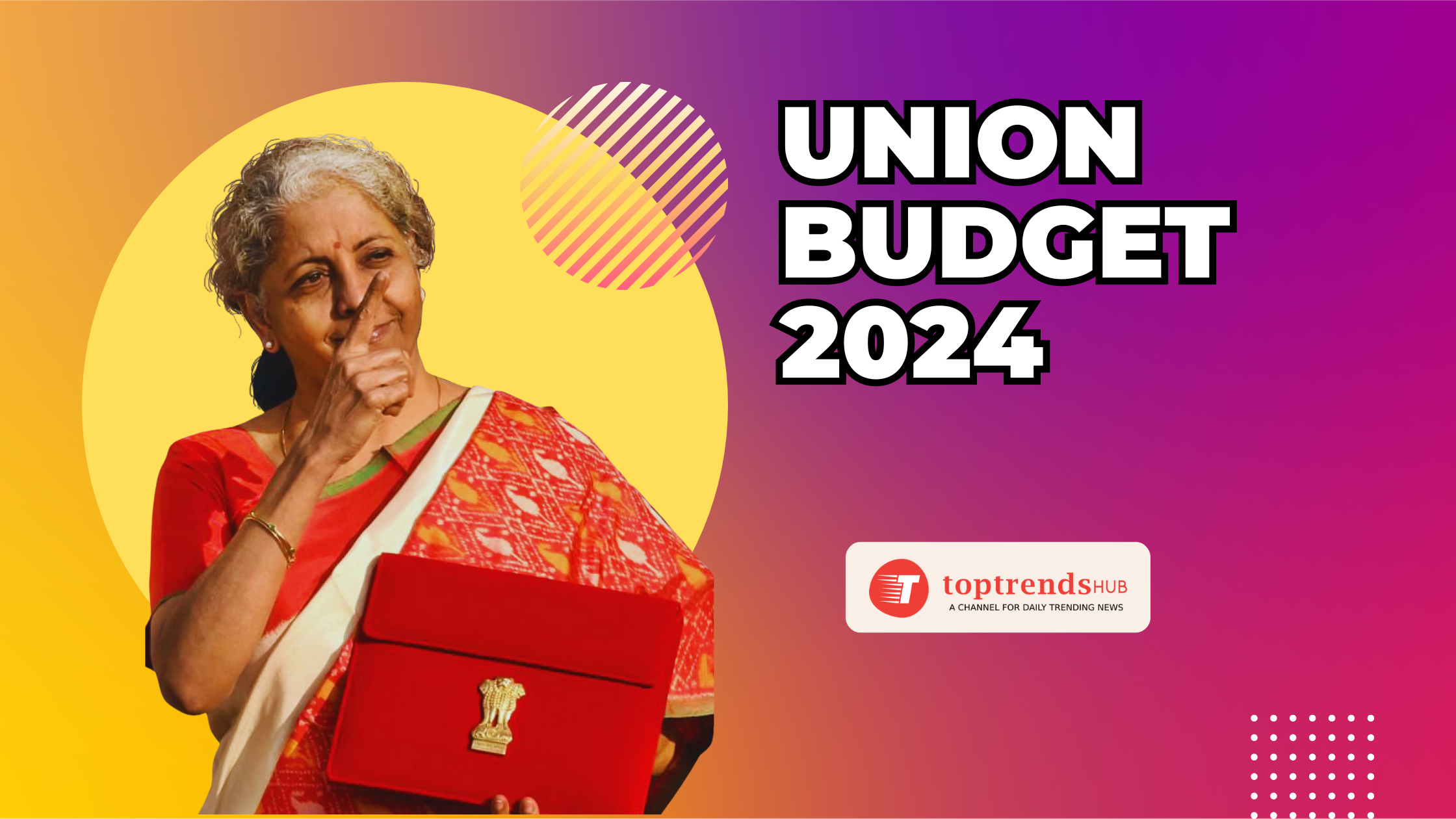In anticipation of the Union Budget 2024, Finance Minister Nirmala Sitharaman is poised to present her budget proposal on July 23. Stay tuned for comprehensive coverage of the Union Budget, with timely updates, expert analysis, and critical insights into the fiscal policies that will influence India’s economic trajectory. Moreover, as sources disclosed to FinancialExpress.com, Sitharaman is anticipated to table the Union Budget for FY2025 on July 23 or 24
Budget 2024 Date Updates: Anticipation Builds as Official Announcement Awaits
While reports suggest Finance Minister Nirmala Sitharaman is set to table the Union Budget for FY25 on July 23 or 24, the government has yet to make an official announcement. As the anticipated date nears, expectations, demands, and anticipation are growing among people, industries, and economists.
With the commencement of the first session of the 18th Lok Sabha on June 24, the election of the Lok Sabha Speaker took place on June 26. Following a voice vote, Om Birla, a three-time BJP MP, was re-elected for a second term, defeating Congress’ Kodikunnil Suresh, the candidate put forth by the INDIA bloc. The session is projected to continue until August 9.
Budget 2024: Why Long-Term Investors Should Reconsider Decisions Based on Expectations
Union Budget 2024: A study examining market performance before and after Union Budget announcements since 2000 found that the event had no lasting impact on stock performance, making it an unreliable indicator for investment decisions.
Union Budget 2024: A Comprehensive Study on Market Impact
A recent study tracking market performance around Union Budget announcements since 2000 reveals that these events do not have a lasting effect on stock performance. The analysis highlights that while there may be short-term volatility and market reactions, the long-term impact on stock prices remains negligible. Therefore, using budget announcements as a primary indicator for making investment decisions is not effective. Instead, investors should focus on broader economic trends, company fundamentals, and other more reliable indicators when planning their investment strategies. This insight underscores the importance of a holistic approach to investing, rather than reacting to annual budget announcements.
Union Budget 2024: Impact Analysis on Returns of Top 500 Indian Companies
According to a study conducted by Capitalmind Financial Services, the top 500 companies in India saw a median return of -0.1 percent across 24 Budget days since 2000.
The SEBI registered portfolio manager emphasized that investors should not trust Union Budgets to accurately predict annual returns, highlighting the importance of a long-term investment strategy.
They strongly recommended that long-term investors refrain from basing their investment decisions solely on Budget expectations or announcements, given the limited impact these have on stock performances, as the study’s analysis demonstrated.
Fundamentals Drive Long-Term Investments, Not Budget Hype
Anoop Vijaykumar, Investments & Head of Research at Capitalmind, emphasized that investors’ expectations increase market volatility before and after budget announcements, but corporate earnings growth mainly drives long-term market trends.
He advised long-term investors against making significant equity allocation decisions solely based on budget forecasts or announcements, urging them instead to maintain their investment strategies in alignment with their financial goals. This approach ensures a more stable and goal-oriented investment journey, irrespective of short-term market fluctuations.
Market Reactions to Budget Announcements: Insights from Capitalmind Study
The Capitalmind study highlighted four notable instances where market reactions to budget announcements defied expectations:
- February 2003: The NDA government introduced new taxes like state-level VAT and service tax. Despite a 0.5 percent gain on Budget day, the CNX500 plummeted by 6 percent a month later and doubled a year after.
- July 8, 2004: In an election year, the UPA government abolished Long-Term Capital Gain tax on equities and introduced Securities Transaction Tax (STT). Despite positive news, CNX500 fell by 3.2 percent on that day.
- February 2015: The NDA government announced plans to lower corporate tax to 25 percent, aimed at boosting corporate earnings. Despite this, CNX500 rose marginally by 0.4 percent on announcement day, but fell by 3.6 percent a month later and ended the year down by 18.7 percent.
- 2018: The NDA government reintroduced 10 percent LTCG tax on annual gains over ₹1 lakh. CNX500 recorded a slight decline of 0.1 percent on that day and dropped by 4.6 percent a month later.
Additional Insights
- The study identified February 1, 2021, as the best Budget Day with investors gaining 4.1 percent.
- The worst performance was observed on July 6, 2009, with a decline of 5.4 percent.
- Investors exhibited cautious behavior before Budget announcements, with median returns of -2.2 percent and -1.4 percent one month and one week prior, respectively.
- Investor behavior mirrored pre- and post-Budget uncertainty, with a reduction in exposure 63 percent of the time before the Budget and re-entry into the market 62 percent of the time post-Budget.
- Investing one day before the Budget resulted in a coin toss scenario, with a 54 percent chance of negative returns one month later, consistent with overall equity market behavior on yearly timeframes.
Budget 2024 Live Updates: Key Developments and Announcements

June 27, 2024: Finance Minister Nirmala Sitharaman chaired the ninth pre-budget consultation, collaborating with experts from the health and education sectors. In attendance were the Union Minister of State for Finance, the Finance Secretary, Secretaries from various economic and educational departments, and the Chief Economic Adviser.
June 25, 2024: The eighth pre-budget consultation centered on the employment and skill development sectors. Key participants included the Finance Secretary, along with Secretaries from the Ministry of Skill Development and Entrepreneurship, Ministry of Labour, and the Chief Economic Adviser.
Jun 25, 2024: The seventh pre-budget consultation involved representatives from the trade and services sectors, aiming to gather suggestions for the upcoming budget.
June 24, 2024: The sixth pre-budget consultation included representatives from trade unions and labor organizations, providing insights for the forthcoming budget.
Jun 22, 2024: Finance Minister Nirmala Sitharaman held a pre-budget consultation with finance ministers from states and union territories to gather recommendations for the Union Budget 2024-25. Additionally, the 53rd GST Council meeting deliberated on proposals to streamline GST applicability across goods and services, recommending several refinements to tax rates and service exemptions under the GST regime.
June 21, 2024: Finance Minister Sitharaman met with farmer associations and agriculture economists to discuss the upcoming budget, attended by the Minister of State for Finance, Finance Secretary, Chief Economic Adviser, and senior officers from the Agriculture Ministry.
June 20, 2024: The second pre-budget consultation included experts from the financial and capital markets sector. Nilesh Shah, MD of Kotak Mahindra AMC, shared insights on spreading financial awareness under SEBI’s aegis.
June 19, 2024: The first pre-budget consultation took place with leading economists, who provided their recommendations for the budget.
GST Council Meetings:
October 7, 2023: The eighth pre-budget consultation, focusing on the employment and skill development sectors, involved the participation of the Finance Secretary, Secretaries from the Ministry of Skill Development and Entrepreneurship, Ministry of Labour, and the Chief Economic Adviser.
May 2024 GST Collection: GST collections for May 2024 stood at ₹1.73 lakh crore, a 10% increase from the previous year. April’s collection was ₹2.10 lakh crore, up 12.4% year-on-year.
New Monetary Thresholds for Filing Appeals: Finance Minister Nirmala Sitharaman announced new monetary limits for filing appeals by the department in various courts: ₹20 lakh for the GST Appellate Tribunal, ₹1 crore for High Court, and ₹2 crore for the Supreme Court.
Interim Budget 2024 Announcements:
February 1, 2024: Finance Minister Nirmala Sitharaman presented the Interim Budget, highlighting major initiatives:
- 2 crore more homes under PM Awas Yojana
- Housing for the middle class
- Rooftop solar power generation for at least 300 units
- Enhancement of target for Lakhpati Didi
- Empowering MSMEs to compete globally
- Focus on the Eastern region (Bihar, Odisha, Jharkhand, West Bengal, and Chhattisgarh)
- Next-generation railway reforms, including upgrading 40,000 coaches to Vande Bharat standards
- Urbanization initiatives, including metro projects and NaMo Bharat
- ₹1 lakh crore corpus for research and innovation
- Boost to tourism

Budget 2024 Presentation: Finance Minister Nirmala Sitharaman is likely to present the full Union Budget for FY25 on July 23 or 24, 2024, which will coincide with the Monsoon Session of the Parliament.






